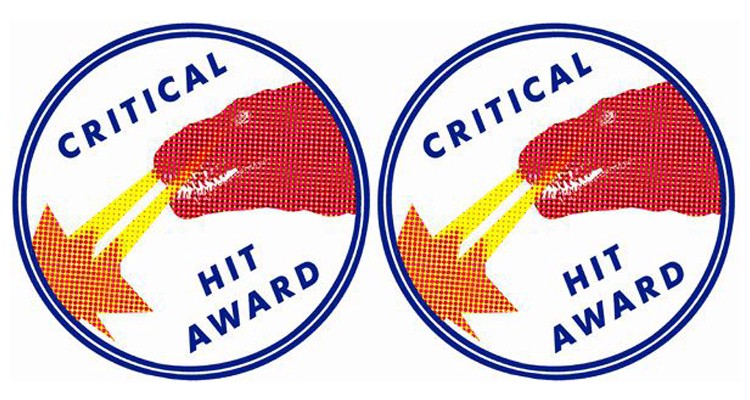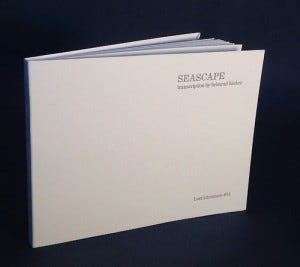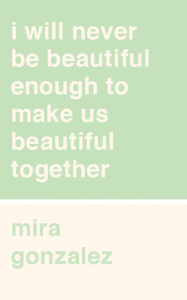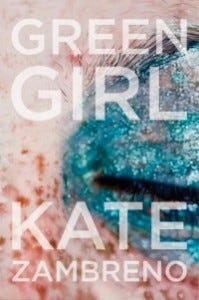Books & Culture
CRITICAL HIT AWARDS: Winners Picked by Janice Lee of HTMLGIANT and ENTROPY

Welcome back to the Critical Hit Awards for book reviews. This is a round-up, a recommended reading list, and — why not? — a terribly prestigious and coveted prize. Winners receive a bang-up gift from Field Notes, our beloved sponsor. Nominate your favorite recent review by tweeting it at @electriclit with the hashtag #criticalhit, or cast your vote in the comments section below.
Our guest judge is Janice Lee, Reviews Editor at HTMLGIANT and Executive Editor at ENTROPY.
Electric Literature: The book reviews that you edit at HTMLGIANT and ENTROPY cover a huge range of literary forms and writing styles. Is there any kind of book that “gives better review” — that lends itself to more exciting criticism?
Janice Lee: I think it’s definitely more about the perspective and engagement with a book, than it is about the book itself. Of course there are certain types of books I’m drawn to as a personal bias, but if someone’s got a really interesting and critical perspective on, say, Fifty Shades of Grey, that can make for a really interesting piece of cultural discourse. Reviews that are exciting are exciting because the reviewer is really going above and beyond on the minimum level of engagement. Whether it’s a personal, emotional, critical, philosophical, intellectual, theoretical, political, poetic, or technical take (or ideally some combination of the above), I’m excited to see the manifestation of someone’s relationship with a text.
Often the reviews that are most exciting to me actually end up saying more about the reviewer than the actual book.
That gets me excited. In my own criticism, I’ve strayed away from more critical and intellectual essay-like approaches, and my reviews often end up like mini-memoir pieces. They’re personal. Because if the book really had an impact on me, it made me feel something and I want to convey that relationship.
How often do you disagree with the final assessments in the reviews that you edit?
Probably pretty often. I mean if it’s matter of whether they liked or disliked the book, and I felt the opposite, sure that happens sometimes, but what’s more important to me is if the level of engagement is there, if it’s smart, if it’s genuine, if it’s interesting. Every relationship with a text is absolutely unique, and of course we have similar experiences sometimes. I don’t have to agree with the reviewer in their conclusions, but I do want to be able to empathize with them, and if the writing is solid and genuine, the empathy will be there despite differing opinions.
Two of the winning reviews you picked have great opening lines. Is there a difference between a great opening line for a book review and a great opening line for other types of writing?
Sure. I mean a great opening line is a great opening line, but when you sit down to read a book, there’s already some amount of commitment there. You’ve got the book in hand and you have the intention of following through.
Book reviews though, especially online, I think aren’t often read all the way through.
This is the reality of writing published online in general, so I think a great opening for a book review both serves to help a reader get engaged with a critical piece of writing, i.e. the review, and perhaps also interested in the subject of the review, i.e. the book.
Let’s say you read a book and hate it. Do you tell everyone it was terrible, or do you ignore it so it doesn’t get any more attention?
I usually tell people it was terrible. I might not write a review of it, or proclaim it loudly, but if it comes up, I’ll be honest. What I’m more adamant about spreading and telling everyone though is if I’ve read something incredible. The last time I remember that happening was when I read The Book of Monelle by Charles Schwob (Wakefield Press), newly translated by Kit Schluter. I told everyone I knew who was literate that they had to read this book. I believe in trying to spread more good things than bad.
There’s a lot of bad and mediocre literature out there. I don’t feel the need to shout about it whenever I encounter something bleh. I’d rather use my energy in shouting about the really, really awesome stuff.
And the winners are…
Vanessa Place on Seascape by Heimrad Bäcker for The Constant Critic

Opening with the question, “Have you ever killed anyone?”, Place’s reviews drags biography, poetics, morality, even excrement, into a review that reveals as much about the contextual narrative of the book as it does about the book’s content. As she says in the review, “Note that this has not been so much a poetry review as such to date, but a rather linear historical exegesis, and a complication of guilt,” calling into question notions of reading and the role of ethics in poetry. To me this review exemplifies the kind of contextualization, complication of subjectivity, and notification of a guilt that a great review ought to.

This review opens with the statement, “Having feelings is hard,” and indeed, the review proceeds to expand on the perceived role of flatness in Gonzalez’s poetry. I think the review really does a fantastic job of delving into the messiness of emotions but pulling at the importance of the intention and gesture behind the work, acknowledging too the significance of feelings in general, especially in criticism. Reviews, I think, tend to focus on overly intellectual readings, providing more history and theory surrounding the writing and avoiding the “feelings” a reader might have during and around the reading of the book. But I think the empathetic gesture is a crucial one.
Megan Milks on the heroine of Green Girl by Kate Zambreno for the Los Angeles Review of Books

To be perfectly honest and at risk of exposure, I will admit to you that this is not my favorite book. But this review exemplifies to me the kind of engagement — simultaneously intelligent, critical, and emotional — that I think great reviews ought to have. It opens up articulations, questions, themes in such a way as to become an incredibly well-written essay on its own, without simply existing as a “book review.” Milks even works the narrative of her own personal expectations surrounding the narrative of the book. An honest and generous meditation.
***
Congratulations to our winners! Please contact Brian Hurley to claim your Field Notes prize.
Read a good review lately? Nominate it for a Critical Hit Award by tweeting it at @electriclit with the hashtag #criticalhit or cast your vote in the comments section below.
***
– Janice Lee is the author of KEROTAKIS (Dog Horn Press, 2010), Daughter (Jaded Ibis, 2011), and Damnation (Penny-Ante Editions, 2013). She is Co-Editor of [out of nothing], Reviews Editor at HTMLGIANT, Editor of the new #RECURRENT Novel Series for Jaded Ibis Press, Executive Editor at Entropy, and Founder/CEO of POTG Design. (http://janicel.com)
– Brian Hurley is Books Editor at The Rumpus, Founder of Fiction Advocate, and Curator of the Critical Hit Awards.









